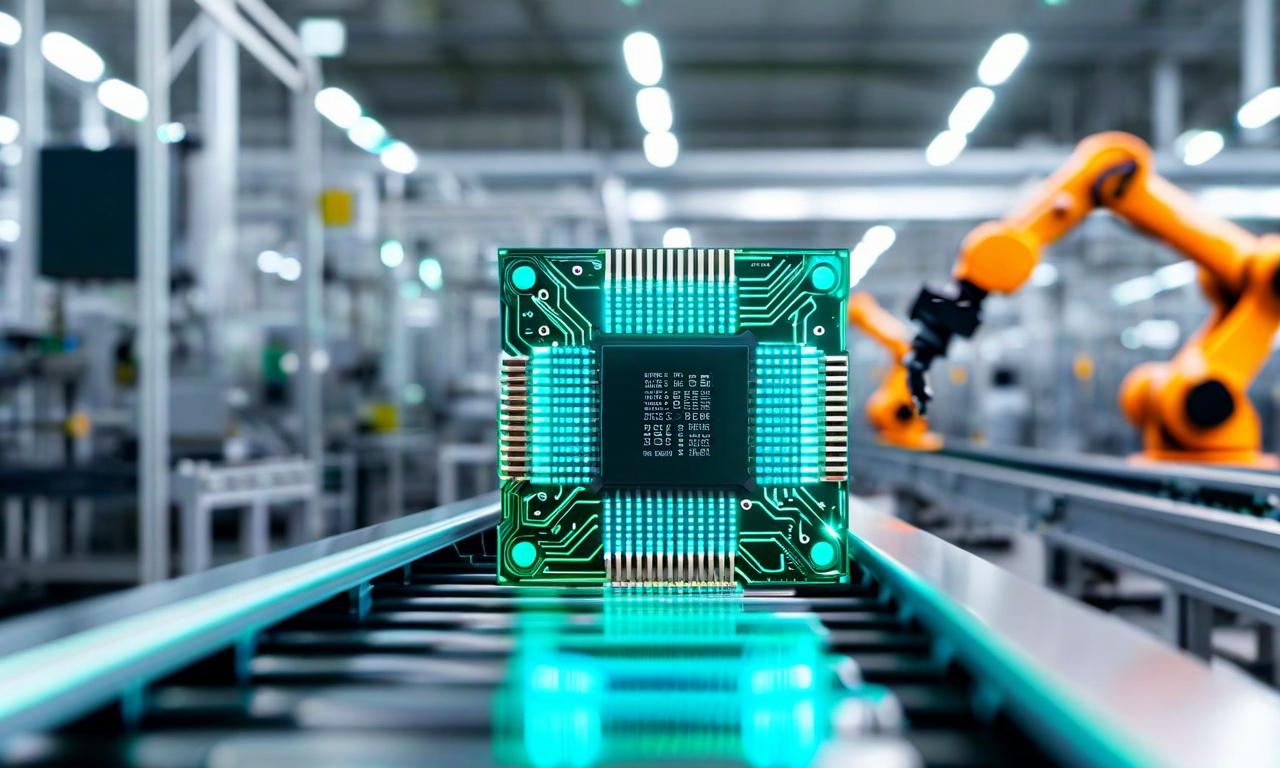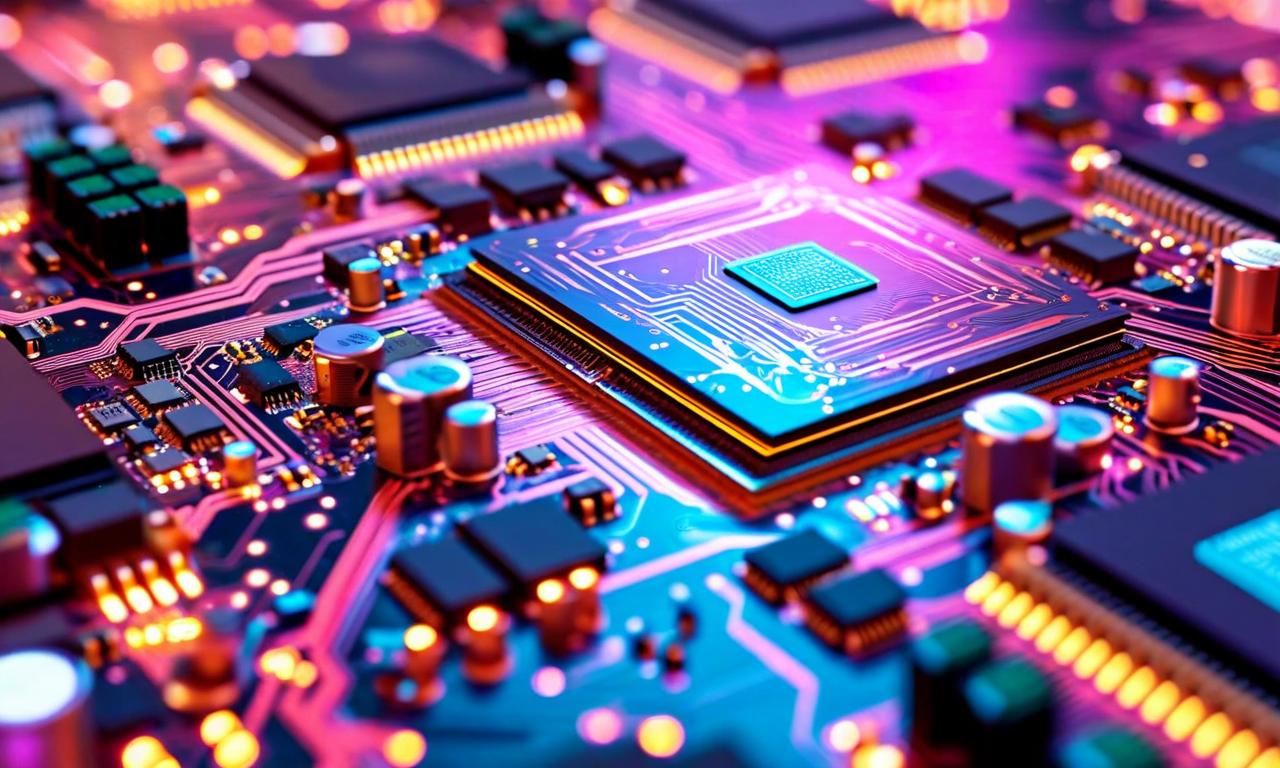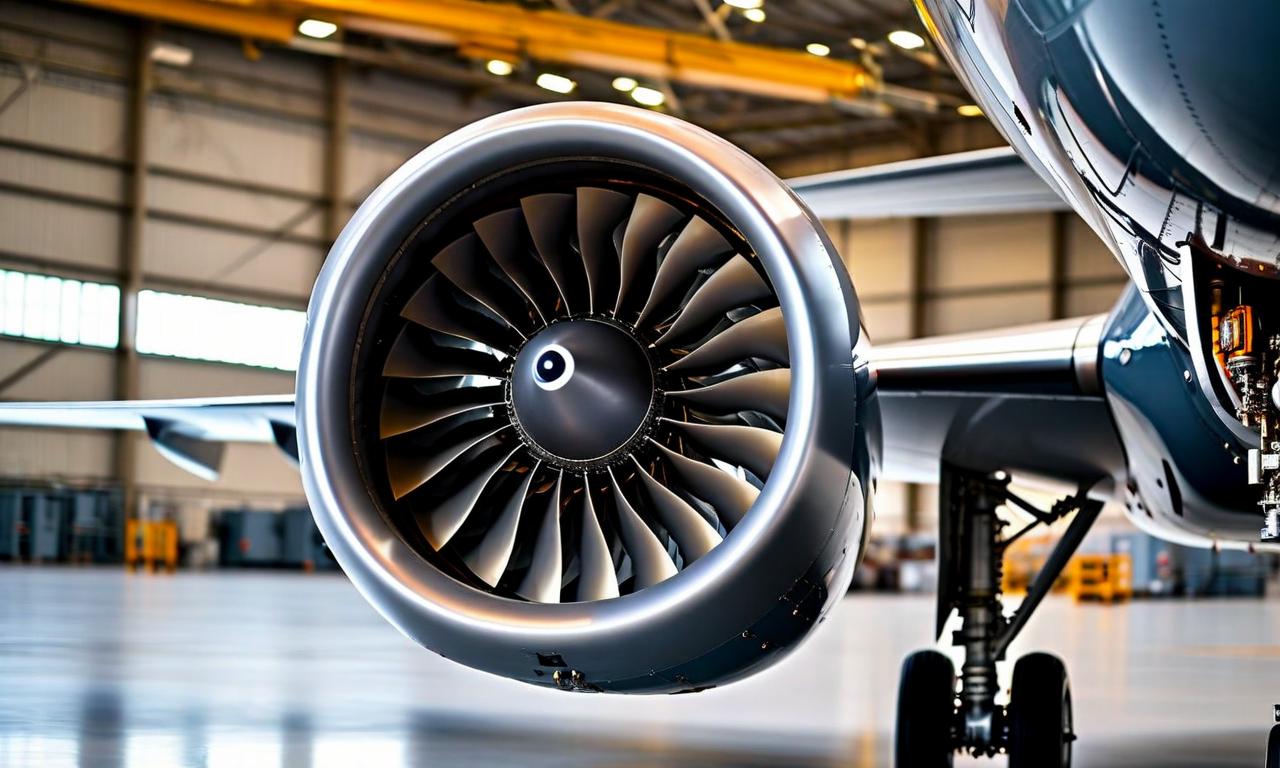Nvidia Unveils $3,499 Robotics Developer Kit, Options Signal $260 Billion Market Value Swing Ahead of Earnings
Nvidia has introduced the Jetson AGX Thor robotics chip module, a powerful 'robot brain' based on Blackwell graphics processors. The developer kit is priced at $3,499, with the Thor T5000 modules available for $2,999 in bulk orders. The new chip is 7.5 times faster than its predecessor and includes 128GB of memory for AI models. Major tech companies like Agility Robotics, Amazon, and Meta have already adopted the technology. CEO Jensen Huang sees robotics as Nvidia's largest growth opportunity outside of AI.

*this image is generated using AI for illustrative purposes only.
Nvidia, the renowned graphics processing unit (GPU) manufacturer, has made a significant move in the robotics industry with the launch of its Jetson AGX Thor robotics chip module. The company is offering the module as a developer kit priced at $3,499, marking a strategic push into the burgeoning field of robotics.
Jetson AGX Thor: The New 'Robot Brain'
The Jetson AGX Thor, based on Nvidia's advanced Blackwell graphics processors, is designed to function as a 'robot brain'. This powerful chip aims to empower customers in creating sophisticated robots with enhanced capabilities. Nvidia claims that the Jetson Thor chips are 7.5 times faster than their previous generation, representing a substantial leap in processing power for robotics applications.
Technical Specifications and Pricing
The new chip module boasts impressive specifications:
- 7.5x faster than the previous generation
- 128GB of memory for AI models
- Developer kit priced at $3,499
For production-ready robots, Nvidia will offer Thor T5000 modules. The company has announced bulk pricing of $2,999 per module for orders exceeding 1,000 units, making it an attractive option for large-scale robotics deployments.
Industry Impact and Adoption
Nvidia's Jetson Thor chips are already making waves in the industry, with several major tech companies incorporating them into their robotics initiatives. Notable adopters include:
- Agility Robotics
- Amazon
- Meta
This early adoption by industry leaders signals strong potential for Nvidia's robotics technology in various applications.
Nvidia's Strategic Vision
CEO Jensen Huang has identified robotics as the company's largest growth opportunity outside of artificial intelligence. This launch aligns with Nvidia's strategic positioning as an infrastructure and software enabler for the robotics industry, rather than a direct robot manufacturer.
By providing the 'brains' for robots, Nvidia aims to establish itself as a crucial player in the robotics ecosystem, leveraging its expertise in GPU technology and AI to drive innovation in this rapidly evolving field.
Market Implications and Earnings Expectations
The introduction of the Jetson AGX Thor and Nvidia's focus on robotics as a key growth area could have significant implications for the tech industry:
- Accelerated robotics development: The powerful new chip may enable faster and more sophisticated robot designs.
- Increased competition: Nvidia's entry may spur other chip manufacturers to enhance their offerings for the robotics market.
- Potential for new applications: The advanced capabilities of the Thor chip could open up new possibilities in fields such as automation, healthcare, and space exploration.
As Nvidia prepares to release its second-quarter earnings report, options traders are pricing in approximately a $260 billion swing in the company's market value. This indicates a roughly 6% move in either direction for the shares, which is below the 7% long-term average. The lower expected volatility suggests that investors may have better expectations as the company matures.
Over the last 12 quarters, Nvidia's implied earnings move averaged 7.7% while actual moves averaged 7.6%. Traders are closely watching to see if the company's $4 trillion market valuation is justified and monitoring potential impacts from a recent revenue-sharing deal with the U.S. government.
Nvidia shares have gained about 34% this year and closed at $179.81. Market analysts note that Nvidia's performance could influence other AI-related stocks, particularly more speculative names that have declined recently while Nvidia remains near all-time highs.
As Nvidia continues to expand its footprint in the robotics sector and maintains its strong position in AI, it will be interesting to observe how these developments shape the future of both the company and the broader tech industry.

























